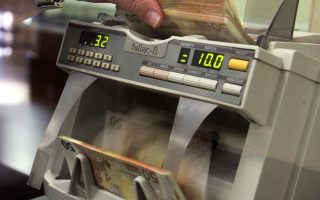Central banker: Greeks spend €40 bln more than they declare

Greeks spend €40 billion more than they declare as income, Bank of Greece governor Yannis Stournaras told the 19th annual Tax Forum of the American-Hellenic Chamber of Commerce Tuesday.
This difference reflects the size of the grey economy Stournaras said, adding that the latest data, from 2021 incomes and expenditures put that size at 20.9% of GDP. It is also a reliable gauge of tax evasion, although evasion and the gray economy are not one and the same, Stournaras remarked.
In the period 2015-21, this excess spending ranged from €36 billion to €49 billion, the central banker said.
Total declared income for 2021 was about €84 billion, of which 79% came from salaried workers, including merchant marine employees. These categories, who can’t hide their income, which is taxed at its source, pay disproportionately high taxes.
About 70% of taxpayers engaged in a form of business activity, or who are self-employed declare annual incomes less than €10,000. And 37% of individual taxpayers declare income of up to €5,000.
That the self-employed and very small enterprises disproportionately hide their incomes is not unique to Greece; it happens in almost every country, Stournaras said.
Of course, the very rich have their own ways to avoid paying taxes, through offshore companies and use of dummy invoices.
Tax avoidance extends to indirect taxes: in 2020, Greece was 4th among EU members in non-payments of Value Added Tax; the lag between expected VAT receipts and actual ones is estimated at 19.7% or about €3 billion. Still, Stournaras said, there has been progress on that front as a result of the pressure to adopt electronic payment methods.
What can be done to fight tax evasion? Stournaras had six proposals: expand electronic transactions to cover more economic activities; provide incentives for payments by credit or debit cards and through the banking system; offer tax breaks to those who reveal undeclared transactions, especially in sectors with proven high levels of tax evasion; continual upgrading of the Public Revenue Authority’s electronic transaction monitoring systems; provide a stable, and simplified, tax regime; and intensify efforts to create a culture of income accountability.





